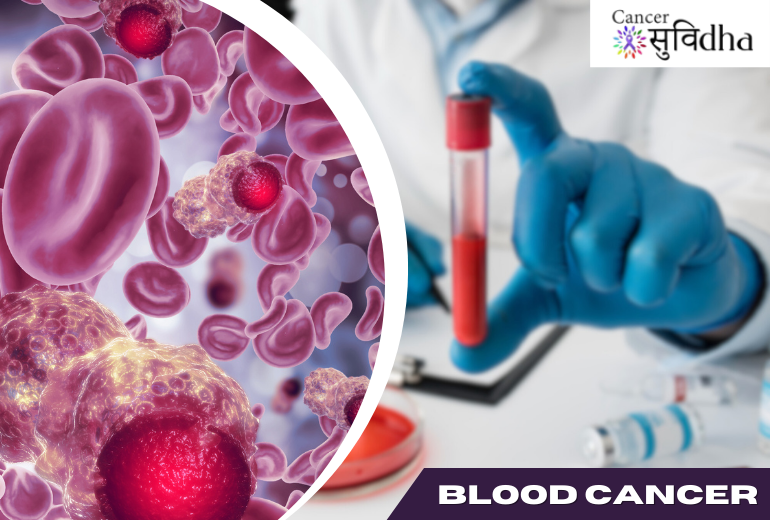Service Detail

Blood Cancer
Blood Cancer Specialist Doctor in Delhi
Blood cancer, also known as leukemia, is a type of cancer that originates in the blood and bone marrow. It primarily affects white blood cells (WBCs), although it can occasionally involve red blood cells (RBCs) and platelets. Leukemia can occur at any age and is classified into two main types: acute and chronic. Acute leukemia develops and progresses rapidly, while chronic leukemia worsens over time. Treatment options for leukemia vary depending on the type and stage of the disease.
Symptoms of Blood Cancer
Symptoms of leukemia depend on which type of blood cells are affected and how quickly the cancer cells are multiplying. Common symptoms include:
- Bleeding: Platelets, which are crucial for blood clotting, are often affected in leukemia, leading to easy bruising or bleeding. Small red or purple spots called petechiae may appear on the skin.
- Recurrent Infections: White blood cells, responsible for protecting the body against infections, may not function properly or may be present in insufficient numbers, making the patient more susceptible to infections. Symptoms may include fever, chills, redness, and cough.
- Anemia: A lack of RBCs can cause anemia, leading to symptoms such as fatigue, pale skin, shortness of breath, and sometimes jaundice due to the rapid breakdown of RBCs.
- Bone and Joint Pain: Leukemic cells can multiply rapidly in the bone marrow, causing severe pain in the bones and joints, which may be mistaken for arthritis.
Other symptoms can include swollen lymph nodes, enlarged liver or spleen, headaches, seizures, difficulty breathing, and jaundice.
Types of Blood Cancer
- Leukemia: The most common type of blood cancer, leukemia is characterized by an excessive production of WBCs. It can be divided into four main subtypes:
- Acute Leukemia: A rapid accumulation of immature blood cells in the bone marrow.
- Chronic Leukemia: A slower progression with the presence of some mature cells along with immature ones.
- Lymphocytic Leukemia: A condition where immature lymphocytes (a type of WBC) are produced in the bone marrow.
- Myelogenous Leukemia: Involves the production of abnormal platelets, RBCs, and WBCs by the bone marrow.
- Lymphoma: This type of blood cancer involves the rapid growth of lymphocytes, often treated successfully with medication and radiation therapy. Surgery may be required in advanced cases.
- Myeloma: Myeloma affects plasma cells, weakening the immune system and reducing the body's ability to fight infections.
Treatment Options for Blood Cancer
- Chemotherapy: Chemotherapy uses drugs administered via IV to kill cancer cells. While effective, it can cause side effects like hair loss, weight loss, nausea, and a temporary reduction in blood cell counts. However, these effects usually resolve after treatment.
- Targeted Therapy: This treatment uses drugs that specifically target cancer cells without harming healthy cells, minimizing side effects. Drugs like rituximab, imatinib, dasatinib, and nilotinib are commonly used in targeted therapy.
- Interferon Therapy: Interferons are proteins produced by the immune system to fight infections and cancers. This therapy helps control the growth of leukemia cells but can have significant side effects.
- Radiation Therapy: Often recommended for adults and some children over the age of 3 with acute lymphocytic leukemia (ALL), radiation therapy uses high-energy beams to destroy cancer cells.
- Stem Cell Transplant: In this procedure, the patient's bone marrow is destroyed with chemotherapy or radiation therapy and replaced with healthy stem cells, which can regenerate healthy blood cells.
If you or someone you know is experiencing any symptoms of blood cancer, it's crucial to consult with a specialist in Delhi for proper diagnosis and treatment.
